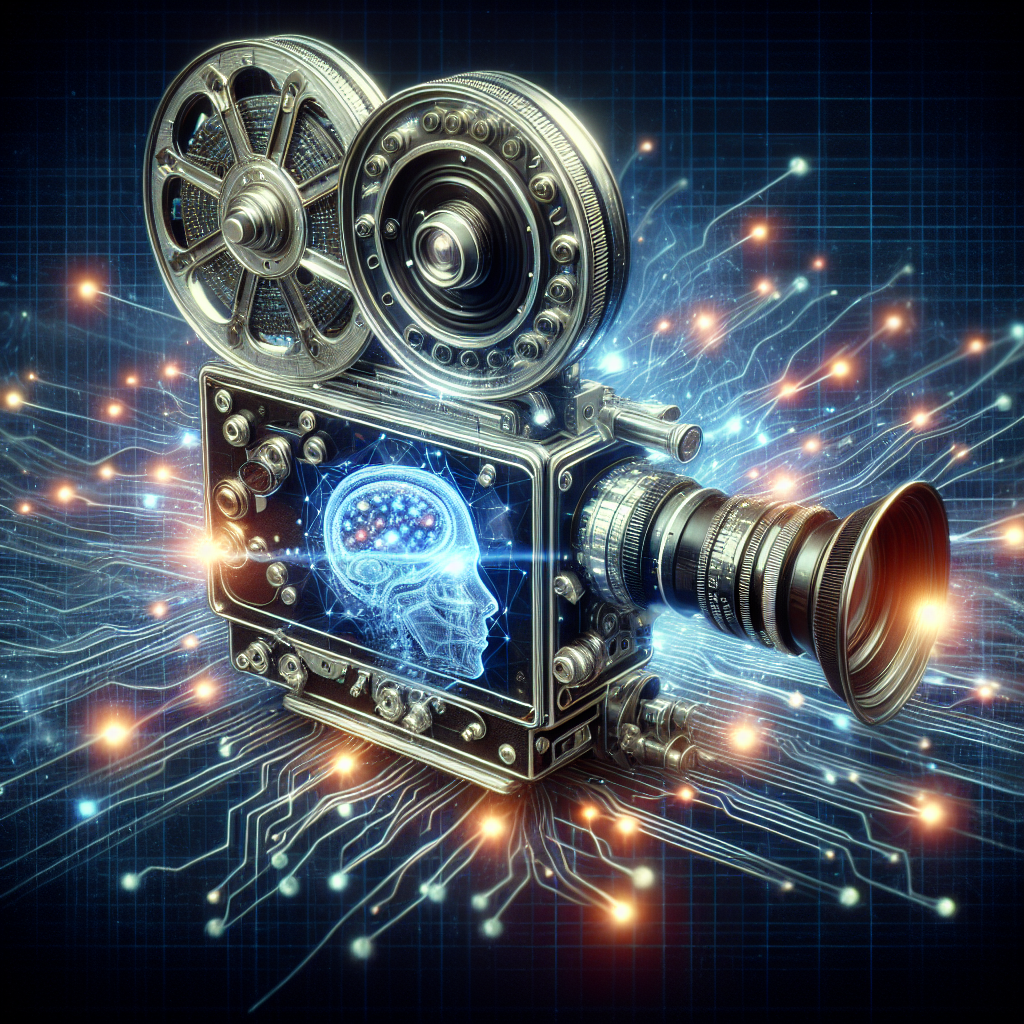Artificial Intelligence (AI) has revolutionized many industries, and the world of cinematography is no exception. With the advancements in AI technology, filmmakers now have access to tools and techniques that were previously unimaginable. From enhancing camera techniques to streamlining post-production processes, AI is changing the way movies are made and viewed.
One of the most significant ways AI is impacting cinematography is through its ability to enhance camera techniques. AI-powered cameras can now automatically adjust focus, exposure, and framing in real-time, ensuring that every shot is crisp and perfectly composed. This not only saves time during filming but also allows filmmakers to focus on capturing the perfect moment without worrying about technical details.
AI can also analyze scenes and suggest creative camera angles and movements that would enhance the storytelling. By analyzing the content of the scene, AI algorithms can recommend camera positions, movements, and shot compositions that would best convey the intended emotions and narrative. This level of automation and assistance was previously only possible with a team of experienced cinematographers and directors, but now AI can provide valuable insights and suggestions to filmmakers of all levels.
In addition to improving camera techniques, AI is also being used to streamline post-production processes. Editing, color grading, and visual effects can all be enhanced and expedited with the help of AI algorithms. For example, AI-powered software can analyze hours of raw footage and automatically select the best shots, trim unnecessary clips, and even suggest music and sound effects to enhance the mood of the scene.
Color grading, a crucial aspect of post-production, can also be significantly improved with AI. By analyzing the colors and lighting in each frame, AI algorithms can suggest adjustments to enhance the visual appeal of the scene. This not only saves time for colorists but also ensures a consistent and professional look throughout the film.
Visual effects, another essential component of modern filmmaking, can also benefit from AI technology. AI-powered software can generate realistic CGI elements, such as explosions, monsters, or futuristic landscapes, with minimal human intervention. This not only speeds up the production process but also allows filmmakers to achieve high-quality visual effects on a limited budget.
Overall, AI is revolutionizing the world of cinematography by enhancing camera techniques and streamlining post-production processes. With the help of AI-powered tools, filmmakers can now create visually stunning and emotionally engaging films more efficiently and effectively than ever before.
FAQs:
Q: How is AI used in cinematography?
A: AI is used in cinematography to enhance camera techniques, streamline post-production processes, analyze scenes, suggest creative camera angles, automate editing, color grading, and visual effects, and generate realistic CGI elements.
Q: What are the benefits of using AI in cinematography?
A: The benefits of using AI in cinematography include improved camera techniques, streamlined post-production processes, time-saving automation, enhanced visual appeal, consistent and professional look, and cost-effective visual effects.
Q: Is AI replacing human cinematographers?
A: AI is not replacing human cinematographers but rather assisting them in enhancing their skills and creativity. While AI can automate certain tasks and provide valuable insights, the art of cinematography still requires human intuition, creativity, and storytelling abilities.
Q: How can filmmakers incorporate AI into their workflow?
A: Filmmakers can incorporate AI into their workflow by using AI-powered cameras, software, and tools to enhance camera techniques, streamline post-production processes, analyze scenes, suggest creative camera angles, automate editing, color grading, and visual effects, and generate realistic CGI elements.

